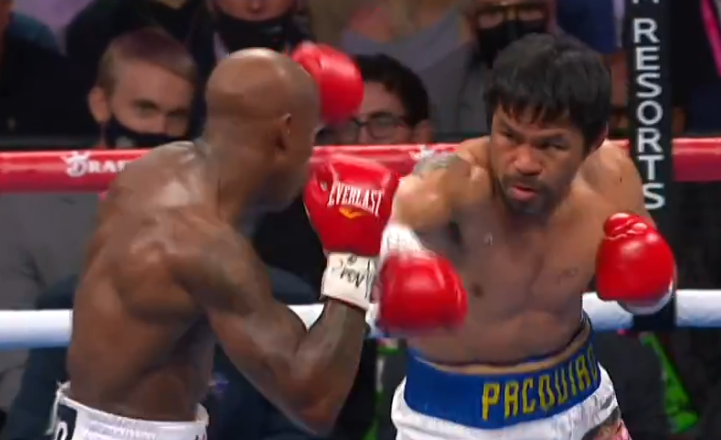Manny Pacquiao: A nation’s symbol of hope
Manny Pacquiao is idolized by millions in the poverty-afflicted Philippines both for his punching power and as a national icon of hope after rising from the streets to the pinnacle of world boxing.

Known to his countrymen in the Asian archipelago as “The National Fist” (‘Pambansang Kamao’ in Tagalog), Pacquiao fights undefeated American Floyd Mayweather on May 2 to decide who is the world’s best “pound-for-pound” boxer.
To most of the Philippines’ population of almost 100 million, Pacquiao, winner of an unparallelled eight world championships in different weight divisions, is a well-loved national symbol, living proof that success is possible with hard work even if you are dirt-poor.
The reigning World Boxing Organization welterweight champion was the Philippines’ top taxpayer in 2013, and Fortune pegged him as the world’s 11th best-paid sportsman with 2014 earnings of $41.8 million.
He is now also elected member of the House of Representatives, a Christian preacher, an improbable professional basketball player and coach, and celebrity endorser for products ranging from karaoke microphones to pizzas, beer and cars.
Friends say the 36-year-old is generous to a fault, sharing his riches with friends as well as the downtrodden.
Some Filipinos see him as a future Philippine president, something that he admits he has considered. He will be eligible once he turns 40, when he is expected to have hung up his gloves.
A southpaw, he began his professional ring career as a teenager, and in 20 years has compiled a 57-5-2 win-loss-draw record with 38 knockouts.
In the ring he is a volume power puncher who uses lightning footwork to create angles with which to deliver flurries, the likes of which have felled Oscar de la Hoya, Ricky Hatton, Miguel Cotto, Erik Morales and Marco Antonio Barrera. (AFP)



